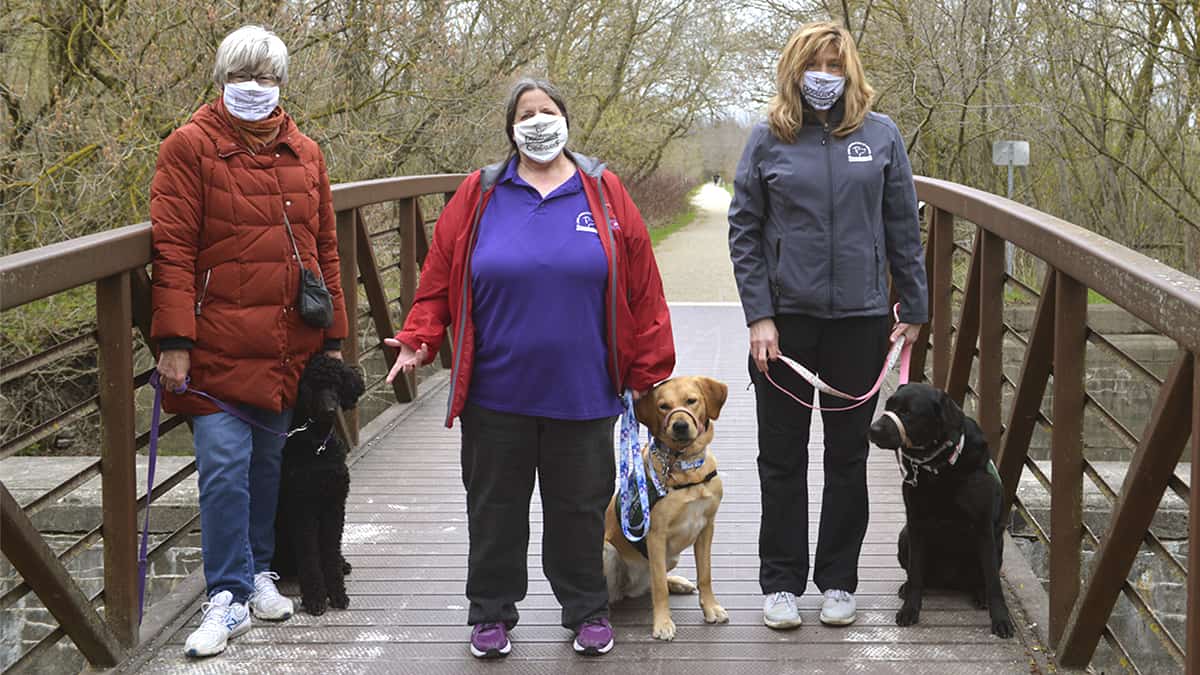At a time when we’re encouraged to stay home to help slow the spread of the coronavirus, not everybody has the option, or even a home where they can shelter in place.
Children in need of foster care, for instance, are bearing the brunt of a reduction in the number of foster-parent locations in the region. That prompted Family & Children’s Services of the Waterloo Region (FACS) to note that there are no homes for kids aged 10 and above.
If they can’t be placed locally, those children could be moved to foster homes outside the region, the agency says. That poses a problem for kids who stand to lose out on their already established connections, and they may lose the ability to reconnect with their families, says Victor Santiago, family recruitment worker with FACS.
“When we look at older children, so we’re looking at children from 10 to teenagers, they have established friend network circles, their schools. But the biggest drawback for them is that our foster parents often serve a role of really trying to get those children back to their families for reunification. And the foster parents locally here work with the families, helping them with access to the child, often foster parents will become mentors to the biological families of the foster children in their care,” said Santiago. “So, when we don’t have the local foster parents, the children become disconnected from their community, their schools, their friends. And then the other part is that it makes it more difficult and [creates] more barriers to the family having access to the child, and for the foster families to help the bio family.”
Some 300 kids are currently in the foster care system within Waterloo Region. FACS has 93 foster homes where third-party members of the community take in kids who need care. There are also 120 “kin homes,” meaning kids are placed with members of their family such as aunts, uncles, and the like.
Of those 300, there are about 80 kids who are currently not placed within Waterloo Region and have had to be moved elsewhere to find them a home. Also, there are currently only two homes available that can accommodate taking in siblings.
Santiago says the current lack of options can be attributed to a loss of about a quarter of the available foster homes.
“So, [the last year] has actually been quite a challenging year for us. We’ve actually seen that in 2020, we lost 25 per cent of our foster homes, just in terms of our overall capacity. Now, a lot of that is mainly due to older foster parents were retiring, some were foster parents with over 40 years of service and they’re retiring. Right now with the ongoing pandemic, it’s made things quite challenging in terms of bringing new people on and, of course, people right now are a little bit more hesitant to open up their homes to new people. We aren’t able to get out in person to talk to folks about fostering and our training is also now being done virtually, which also poses a challenge for a lot of people,” said Santiago.
He says over the last few years they have seen a 10 per cent decrease annually, but this year has been especially difficult on them.
FACS is currently looking for more foster families to join them and help give homes to the kids who need them. Santiago says the process is about nine weeks and includes nine mandatory courses, home inspections, police checks, and more to ensure the applicants are the right fit.
Santiago says because they are part of the region’s pandemic response, there are positions open to house kids who may have caregivers incapacitated by COVID-19.
Click here for more information or call 519-576-0540.









